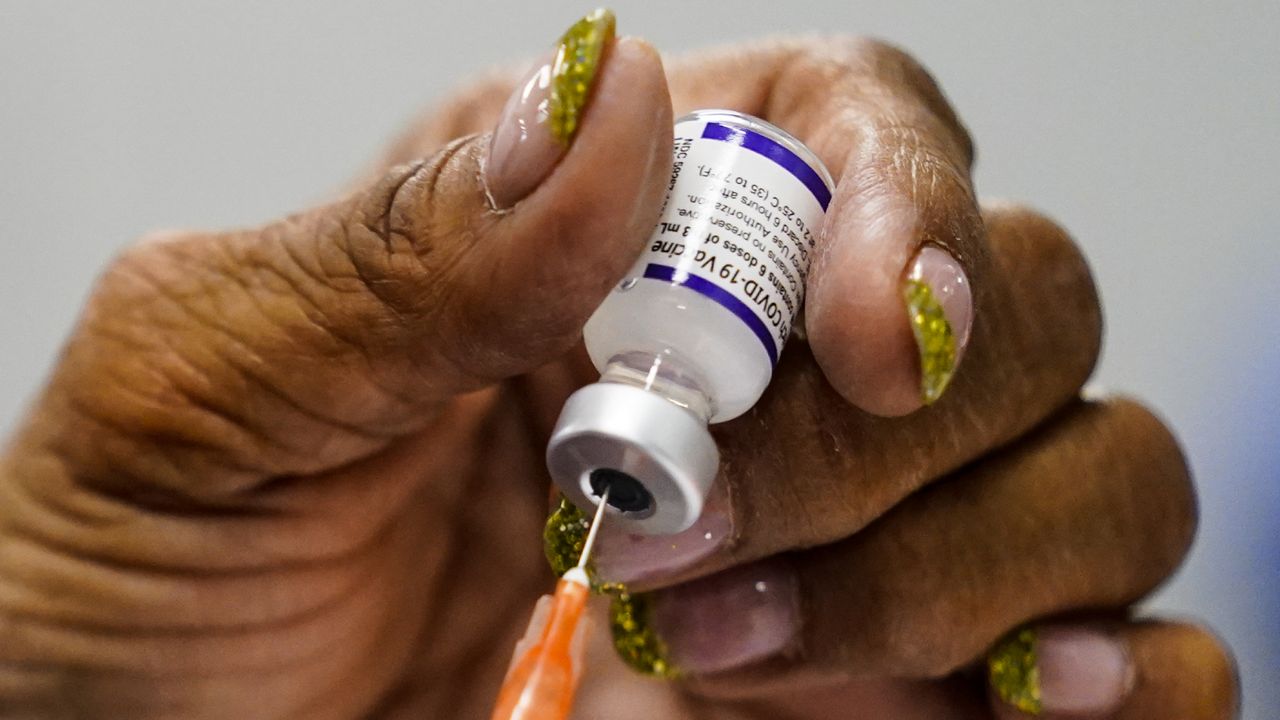A trio of new studies by researchers at the Centers for Disease Control and Prevention give further weight to COVID-19 booster shots offering substantially better protection against both infection and severe illness, even against the omicron variant, than the primary vaccination series alone.
What You Need To Know
- A trio of new studies by researchers at the Centers for Disease Control and Prevention give further weight to COVID-19 booster shots offering substantially better protection against both infection and severe illness, even against the omicron variant, than the primary vaccination series alone
- The studies confirmed that the highly transmissible omicron variant is more resistant to vaccines, but that boosted people face the longest odds of being infected and hospitalized by COVID-19
- One study found that during the omicron wave, mRNA vaccine effectiveness fell from 52% to 38% six months after the second shots, but rose to 82% after a booster was administered
- A separate study found that unvaccinated people are still five times more likely to be infected than fully vaccinated and boosted people during the omicron surge
CDC Director Dr. Rochelle Walensky discussed the three studies during a White House COVID-19 Response Team news briefing Friday.
“These reports add more evidence to the importance of being up to date with COVID vaccinations,” Walensky said. “That means getting your primary series and getting boosted when eligible to protect against severe COVID-19.”
The studies confirmed that the highly transmissible omicron variant is more resistant to vaccines, but boosted people face the longest odds of being infected and hospitalized by COVID-19.
One study, published in Friday’s CDC Morbidity and Mortality Weekly Report, saw vaccine effectiveness against emergency room and urgent care visits during the delta surge dip from 86% to 76% in people six months after receiving their second Pfizer or Moderna dose. But after a booster shot, the protection climbed up to 94%.
During the omicron wave, mRNA vaccine effectiveness fell from 52% to 38% six months after the second shots, but rose to 82% after a booster was administered.
The study told a similar story when it came to hospitalizations. Protection during the time when delta was the dominant variant increased from 81% six months after two doses to 94% following a booster shot. For omicron, it soared from 57% to 90%.
A separate study, also published in the MMWR, found that in October and November — when delta was the dominant strain in the U.S. — unvaccinated people were 14 times more likely to be infected and 53 times more likely to die from COVID than fully vaccinated people who had been boosted. While infection rates for both groups have increased during the omicorn surge, unvaccinated people are still five times more likely to be infected than fully vaccinated and boosted people, the study said. Because death numbers lag weeks behind infections, a comparison of deaths for omicron was not made.
Unvaccinated individuals were four times likelier to be infected and 12.7 times more likely to die than vaccinated, unboosted people.
The Journal of the American Medical Association published the third study, also led by CDC researchers. It looked at people who tested positive for COVID-19 from Dec. 10 to Jan. 1 at more than 4,600 testing sites across the U.S.
Three shots of the Pfizer and Moderna vaccines were about 67% effective against omicron-related symptomatic disease compared with unvaccinated people. Two doses, however, offered no significant protection against omicron, the researchers found.
“Taken together, these data highlight two important points,” Walensky said. “First, those who remain unvaccinated are at significantly higher risk for infection and severe COVID-19 disease. Second, protection against infection and hospitalization with the omicron variant is highest for those who are up to date with their vaccination, meaning those who are boosted when they are eligible.”
Sixty-three percent of Americans are considered fully vaccinated, meaning they’ve received both doses of the Pfizer or Moderna vaccines or one Johnson & Johnson shot. Fifty-three percent of Americans who are eligible for boosters have received them.
Asked Friday why the CDC has not changed its definition of fully vaccinated to include booster shots, Walensky said the agency is instead “pivoting our language” to use the term “up to date,” matching the terminology it uses for flu shots.
Every American age 12 or older is eligible for a booster shot five months after receiving their second Pfizer or Moderna shot or two months after their Johnson & Johnson shot.
The Associated Press contributed to this report.
Correction: A previous version of this article incorrectly said that during the delta surge, unvaccinated people are five times more likely to be infected than fully vaccinated and boosted people, citing study data. This statistic is actually in reference to the omicron surge.



